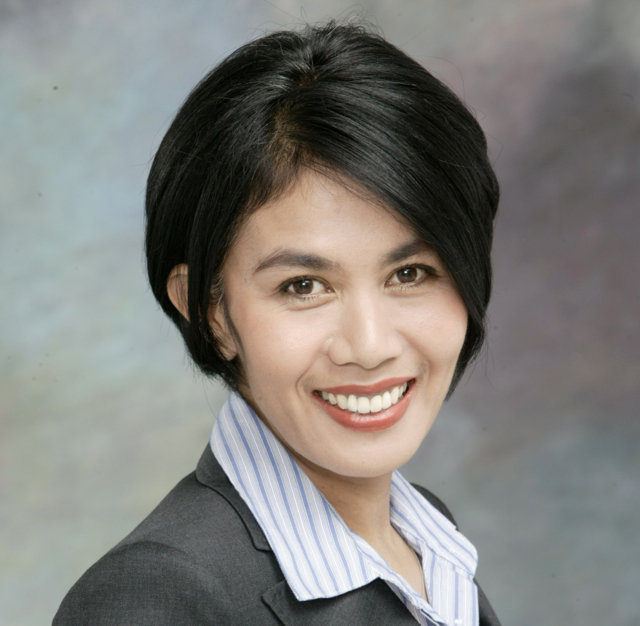Director and Senior Anchor/Journalist at CNN Indonesia
A pioneering journalist and renowned Indonesian TV broadcaster, Desi believes gender equality must start with education. Only then can society level the playing field and open up equal economic opportunities for all.
Desi was born in Bandung to a family of Minang descent, an Indonesian ethnic group famous for having matrilineal culture. According to Minang traditions, only women in the family could inherit and hold lands. Desi grew up with strong women around her – a mother and two older sisters.
“I was born with the idea that women are the ones who do the stuff. If there’s something that needs fixing, or painted, my mom was the one who did everything around the house,” Desi says.
The University of Sussex graduate started her television career as a reporter, anchor and producer with Indonesia’s first commercial television channel and pioneered the country’s leading prime time news programme ‘Seputar Indonesia’.” In the 1990s, Desi produced various daily news shows and created the country’s first English language news programme.
From the period of 1991-1997, Desi was part of the Presidential press corps, travelling with Indonesia’s President Soeharto on his state visits to cover international summits. She interviewed prominent heads of state such as Prime Minister Benazir Bhutto, Baroness Thatcher and Henry Kissinger.
Desi took a break from TV journalism to found a dotcom enterprise, Astaga! – Indonesia’s first internet portal and news and information website. She later returned to her career in TV to join the national channel Metro TV. There, she produced and hosted the prime time economic talk show “Economic Challenges”, interviewing Bill Gates and former Prime Minister Tony Blair, among others.
As a young female journalist, Desi had her share of being looked down upon and receiving comments that made her feel uncomfortable. But through her persistent professionalism, Desi proved many people wrong. Today, Desi is a Director and Senior Anchor with CNN Indonesia. Having seen some of the most celebrated lives on earth, Desi observes a shift in how the world perceives a woman’s leadership.
“What we’ve seen before is that if you want to be assertive and you’re a woman, you become more masculine as a leader. But what we are seeing today, some of the women leaders don’t have to conform to that. New Zealand Prime Minister Jacinta Arden, for example, is a woman and mother, and she doesn’t have to employ masculine tactics. So, that’s also in our [Minang] culture,” Desi says.
Having made herself a household name in Indonesian journalism, Desi began to expand her reach through investing.
The beginning of Desi’s investing journey was simple: she likes eating chocolate. That led her to invest in Krakakoa, a woman-led “farmer-to-bar” social enterprise working directly with smallholder cocoa farmers to produce chocolate.
As an investor, Desi prioritizes impact over profit and returns and believes that an investment in great ideas could have immense impact on women’s livelihoods and opportunities.
“Gender inequality starts from unequal social and economic opportunities,” Desi says. Women are in the most disadvantaged position most of the time if their families are poor. In most poor families, young girls are the first ones who stop going to school.
“We have to look at the gender inequality issue from many aspects, not just from its femaleness, but all of the other intersections,” she adds.
Desi believes investing in women is important because women tend not to think about themselves, but prioritize their families and communities. Ultimately, Desi dreams of a society where gender is no longer an issue.
For Desi, for GLI to advance, there is a need for an environment where women can and want to take up the challenge to climb the ladder. Women consider things as barriers that men may not – such as getting married or having children. In addition, the climate in most organizations can be unpleasant and competitive, whereas women can be much more collaborative.
“Ambition looks good for men but not for women, it is perceived as negative,” Desi says.
Desi sees tremendous opportunities for women in the future, specifically in tech-based ventures, healthcare and education. “For those who still have the liquidity to invest, we need to invest more in opportunities that can empower the self,” Desi says.





